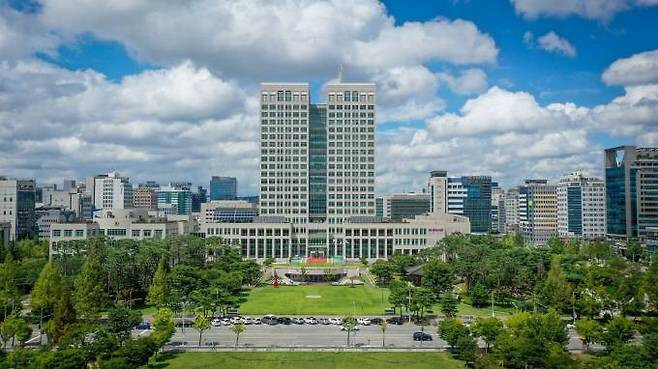
Daejeon City has successfully concluded its Proactive Administration Excellence Awards for the first half of 2025, ultimately selecting seven innovative and highly effective cases.
This competition was organized with the aim of identifying and disseminating outstanding examples of proactive administration that are citizen-centric and demonstrate tangible results. A total of 15 cases were submitted. Among these, 11 cases passed the initial document review. A final selection process, involving online voting by city employees and a presentation review by members of the Proactive Administration Committee and the Citizen Monitoring Group, resulted in one Grand Prize winner, two Excellence Award winners, and four Encouragement Award recipients.
The Grand Prize was awarded to "Preventing Damages to Multi-Household Dwelling Tenants and Creating a Safe Residential Environment (Seo-gu)." This groundbreaking initiative, the first of its kind in the nation, involved public-private cooperation to proactively prevent illegal subdivisions of multi-household dwellings, thereby safeguarding tenants from potential harm and enhancing residential safety. This case has garnered significant attention as a collaborative model between public and private sectors, serving as a benchmark for other local governments nationwide. This initiative likely involved real estate agencies, landlords, and tenant advocacy groups working together with the Seo-gu district office. It may have established a system for verifying legitimate leases, educating tenants on their rights, and providing resources for reporting suspicious activities, ultimately leading to a more secure housing market.
The Excellence Awards went to:
Daejeon-style Integrated Care Service Supporting 365-Day Daily Recovery and Addressing Care Gaps: This comprehensive service aims to fill the gaps in care services, ensuring that vulnerable populations receive the support they need to lead normal lives throughout the year. This likely encompasses a range of services from elder care and disability support to mental health services, coordinated through a centralized system to ensure no one falls through the cracks. It could involve home visits, community-based programs, and partnerships with local healthcare providers to offer holistic support.
The 'Kkumssi Walnut Cookie' Project, Simultaneously Realizing Youth Self-Reliance and Urban Marketing: This project was highly praised for its ability to build a city brand based on empathy with the MZ generation. It's an innovative approach that not only provides opportunities for youth to achieve self-reliance through entrepreneurial endeavors but also serves as a unique urban marketing tool. The "Kkumssi Walnut Cookie" likely refers to a local specialty or a brand developed by young entrepreneurs in Daejeon, leveraging social media and modern marketing strategies to appeal to a younger demographic and promote the city's unique charm. This could involve training programs for young entrepreneurs, access to funding, and marketing support to help them launch and sustain their businesses.
The Encouragement Awards were given to:
Introduction of a 3-Section Articulated Vehicle Through Mobility Regulatory Exception, First for a Local Government: This signifies Daejeon's pioneering spirit in adopting advanced mobility solutions. The introduction of a 3-section articulated vehicle, likely for public transportation, suggests an effort to enhance efficiency and capacity in urban transit. This required navigating and overcoming existing regulations, showcasing the city's commitment to innovation in urban planning and transportation. Such vehicles are typically used in high-demand routes, offering greater passenger capacity and potentially reducing congestion and environmental impact.
Establishment and Operation of "Daejeon Food Inspection Bot," the Nation's First AI-Based System to Enhance Food Safety Administrative Efficiency: This initiative leverages artificial intelligence to streamline and improve the efficiency of food safety inspections. The "Daejeon Food Inspection Bot" likely assists in data analysis, identifying potential risks, and prioritizing inspections, thereby ensuring a safer food environment for citizens. This could involve predictive analytics based on historical data, real-time monitoring of food establishments, and automated reporting systems to quicken response times to potential food safety issues.
Proactive Administrative Promotion for Early Commencement of the Hagi District National Industrial Complex: This case highlights Daejeon City's proactive approach to economic development. By taking early administrative steps, the city aims to accelerate the establishment of the Hagi District National Industrial Complex, which is crucial for job creation and industrial growth. This likely involved swift processing of permits, land acquisition, and infrastructure development to ensure the project stays on schedule and attracts businesses quickly. This proactive stance is essential for fostering a favorable investment environment and boosting the local economy.
Mental Health Awareness Improvement Policy, "Daejeon-Style 'Number 109 to Save My Heart' Campaign": This campaign demonstrates Daejeon City's commitment to public mental health. The "Number 109" likely refers to a dedicated hotline or service for mental health support, aiming to destigmatize mental health issues and encourage citizens to seek help. This initiative could involve public awareness campaigns, accessible counseling services, and community-based mental health programs to promote overall well-being. The campaign's success would depend on effective outreach and providing immediate, confidential support to those in need.
A Daejeon City official stated, "Proactive administration is not just a change in how we do business; it's about creating real change in the lives of our citizens." They added, "We will continue to spread proactive administration across various sectors, based on the creativity and responsibility of our public officials."
Meanwhile, Daejeon City holds these competitions semi-annually, in the first and second halves of the year, to continuously identify exemplary cases. The selected cases are then shared with all departments and autonomous districts to promote and disseminate these best practices throughout the administrative culture.
[Copyright (c) Global Economic Times. All Rights Reserved.]






























